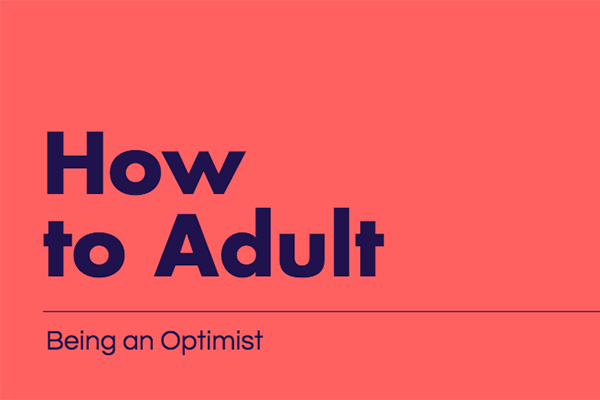
Photo by Sara Gerges
It can be hard to stay optimistic these days. Use these steps to help you out.
How to Adult: Be An Optimist
Following these tips can be very difficult and will take a lot of willpower. Changing the way you think takes time and patience, but it will be worth having a happy brain filled with positive thoughts. It’s just like a diet — if you really want the results, you’ll follow the program. Adding just one new habit could be enough to make a noticeable change.
Compliment People
This can be difficult, especially if you’re really shy or just hate talking to strangers, but it is one of the most important parts of building a positive mindset. Make it a goal each day to give at least one genuine compliment to someone even just a friend or family member. Soon this will become a habit — if you’re diligent.
Giving sincere compliments gives people a positive impression of you. Soon you’ll develop a reputation for being kind. If other people see you as a positive, optimistic person, it won’t be long before you start to see yourself as one too.
Stop complaining
This is hard to hear and even harder to adhere. Everyone complains. Even if you don’t completely stop complaining, make sure you have a valid reason to complain or just cut down on it as much as you can. This will take a lot of time and practice, but it makes a huge difference in how other people see you. Even mild complaints are still unnecessary and don’t help you develop positivity in yourself or encourage it in other people. It breeds negativity. It takes time to break the habit, but thinking about how our complaints come off to other people helps tremendously.
Think Positively
Rewire your brain to look for positive things about every situation. Make a list of things that you enjoy and are thankful for or just take time to mentally list some things. You’ll get better at this as time goes on. Habits are easier to form than break. When you can’t seem to find a “bright side” to a situation, remember it’s usually the worst situations that teach us the most.
Cheer others up
Helping other people find the good things about their situation or themselves lets you practice the skill for yourself. Plus, helping people makes you feel good inside. If a friend is feeling down, point out good things they can focus on instead. Don’t forget to be understanding though.
Be careful about what you let into your mind
Try to surround yourself with positive people. Don’t watch TV shows or videos that bring you down. Listen to music that puts you in a good mood, and you’ll feel and behave more positively. One of the most important places to apply this to and clean out is social media, especially if you spend a good amount of time on it. Don’t be afraid to hit “unfollow” or “mute.”
Most importantly, you get out what you put in.
This applies to everything: studying/grades, friendships and projects. Effort is key. What you fill your mind with is ultimately what will come out in your thoughts, words and actions.